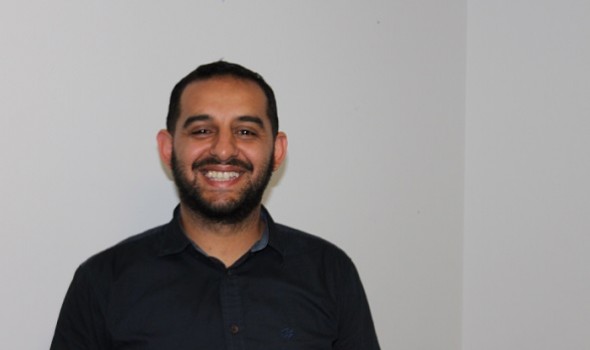Mihai Bica's story: taking on anti-Roma prejudice
Mihai Bica's story: taking on anti-Roma prejudice

Mihai Bica was the only Roma in his secondary school class in Romania and the first Roma in his home town to go to university. Now he is working to support the Roma community the UK.
Roma in UK, as elsewhere in Europe, face severe discrimination and hostility and “sometimes do not have the courage to campaign for themselves or advocate changing the situation,” he says.
He is keen to break the silence by encouraging other Roma to follow in his footsteps and speak up for themselves, which is why he joined the Roma Support Group as a campaign and advocacy worker in 2016, four years after moving from Romania to London.
He has been helping build a group of confident, open-minded, socially conscious, hard-working Champions to form the core of an activist community.
His aim is for them to become spokespeople for the community, explaining Roma issues and problems to officials.
“There are a lot of good people from our community out there, including doctors, lawyers, police officers,” he explains, but often they are reluctant to admit they are Roma for fear of the prejudice that so often follows. “So no one hears their stories. I understand them, because they want to protect their families and secure their jobs.”
Like virtually every Roma he grew up with personal experience of discrimination: “I was always defensive because I was told, ‘You are a Gypsy go away’; ‘You are a Gypsy, we are not playing with you’; ‘We don’t like Gypsies’. A landlord told him, ‘Oh you are a Gypsy – I can’t rent to you’.” Job interviews would elicit the same response.
In Britain, where estimates of the Roma population range from 30,000 to 80,000, he says prejudice has worsened since sensationalist media claims in 2014 about the impending arrival of millions of Romanians and Bulgarians. Prejudice has worsened again since the Brexit referendum vote.
“Before the vote I never had any problems. Soon after the vote, when I was driving a Romanian-registered car, someone stopped in front of me at traffic lights, got out and told me 'We don’t want you here. Go back to Romania.'
“For the most vulnerable in the Roma community it got even worse. One woman we know who was selling the Big Issue magazine was attacked after the vote.” Another, a voluntary worker with a strong CV who wears traditional Roma garb, ”had six or seven job interviews without getting a job”.
Bica points out that “People are blaming us without any knowledge. They are saying bad things about us with absolutely no information. Because of the media, many believe the Roma are just beggars.”
This ignorance extends to 'professionals' – such as civil servants and people providing social services – who need educating because often they know nothing about Roma and are biased: “They think Roma are all from Romania; that Roma parents cannot be good parents. These negative stereotypes are what Roma people have to face.”
Many Roma conceal their origins “because otherwise they are sure they will not get access to the services they are applying for. They are convinced that authorities don’t want them here.”
Part of his job is to deliver training for professionals who come into contact with the Roma community across the UK.
But he would like to see more help coming from government: “Government should take some measures, not leave [groups like] the Roma Support Group to do everything for the Roma community.”
Though many people are helping support the Roma community, government action might improve their effectiveness. “Our work may bring about a fair situation for Roma in 100 years, for example, but the authorities can shorten that period to 20-30 years,” he says.
Bica's own activism was sparked by a schoolteacher: “I was afraid to say that I was a Roma, though it was easy to recognise. I didn’t have the confidence to speak out, so I just avoided talking about it.”
The teacher – with whom he stays in touch, 11 years later – encouraged him to take pride in his identity. He told some of his friends and found that they had no problem with his ethnicity. He started to gain confidence.
The teacher pushed him to go to university, where he studied social work and met a few other Roma students: “They all had aims and wanted to do great things in their lives. They were positive, they had no problem with their Roma identities."
A group was formed, and was encouraged by a Roma charity: “This pushed and motivated me. It made me want to do something for the community.”
Today, he says he feels no problem in saying he is a Roma: “I know how to defend myself; I know what to say to people.”
And despite some unpleasant experiences and the frustrations and pressures of his job, particularly in a climate of hostility to migrants, Bica is happy in London. “This city gives me a chance to have the normal things in life,” he explains. “I like the diversity and I feel happy being a Roma in a city with such a big mix of people. I can go anywhere and I know people are not looking at me in particular, whereas if I went in Bucharest I know people would recognise me as a Roma right away and might have different thoughts. This is one of the good things in London.”


